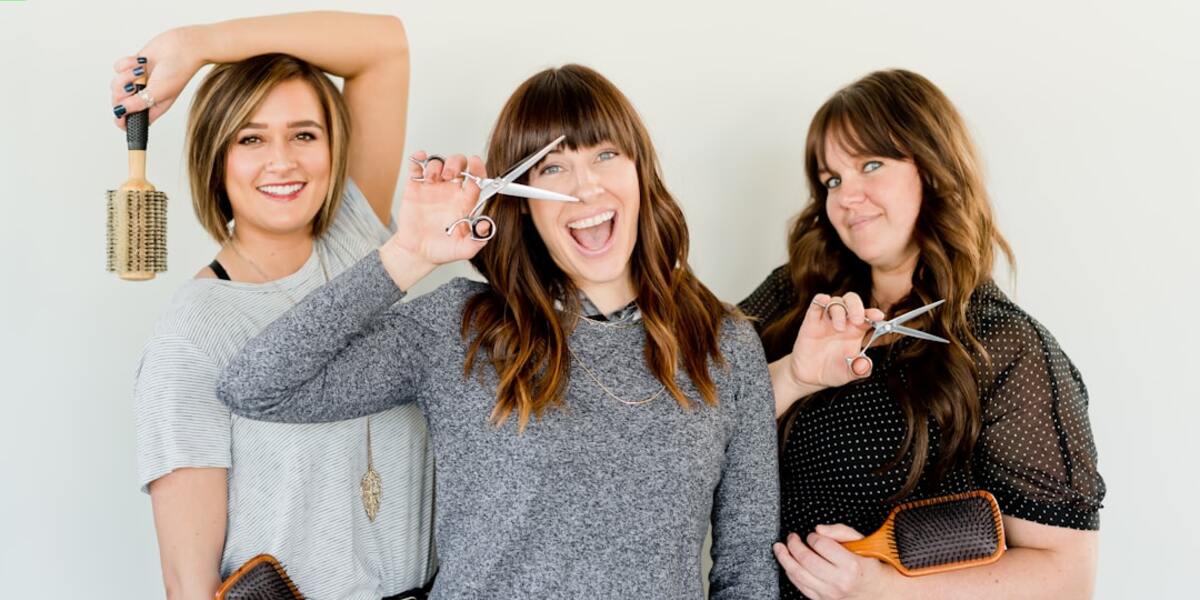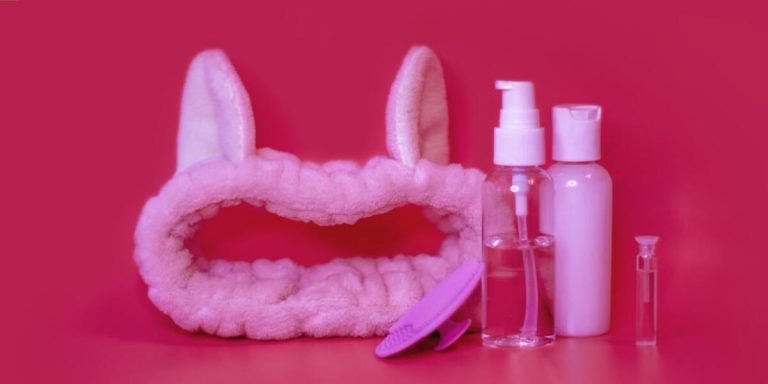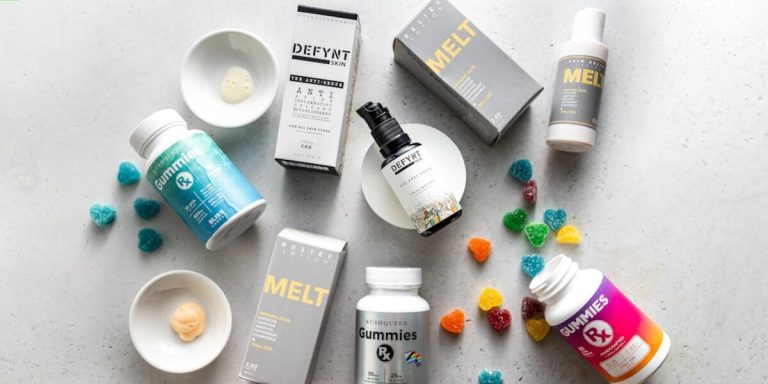Do Prenatal Vitamins Help Hair Growth? Unveiling the Truth
The question, “do prenatal vitamins help hair growth,” has been the topic of numerous debates and discussions. Many individuals keen on pursuing healthier locks believe these vitamins to be a magical solution. But how much truth does this assertion hold?
This blog aims to unveil reality from mythology regarding the efficacy of prenatal vitamins in promoting hair growth.
Diving deep into scientific researches, personal experiences, and expert opinions, we promise a comprehensive view on this subject matter. The journey will navigate through understanding what constitutes prenatal tablets- their potential influence on your tresses’ health and if they indeed can serve as effective ‘hair growth vitamins’. Let’s delve right in!
Did you know?
Contrary to popular belief, prenatal vitamins do not directly stimulate hair growth. Instead, they boost overall health and nutrition levels in the body which can indirectly lead to healthier and stronger hair.
Understanding Prenatal Vitamins and Hair Growth
Prenatal vitamins are often hailed for their role in increasing hair growth. Their formulation contains a broad spectrum of essential nutrients such as folic acid, iron and biotin – all crucial players in promoting hair health. They work by nourishing the cells that make up our locks from within, thereby augmenting their lifecycle and creating an ideal environment for robust growth.
The question is – do prenatal vitamins help with hair growth outside of pregnancy? Scientifically speaking, there’s no direct evidence to suggest they only benefit those who are pregnant. While women may experience improved hair thickness during pregnancy due to changing hormones & increased blood circulation, it’s not solely attributable to taking these supplements.
It’s also important to consider that high levels of certain elements contained within these vitamins can potentially lead to adverse effects if intake isn’t moderated properly or consumed without medical advice. Biotin overdose could result in skin rashes while disproportionate volume of iron might cause gastric discomforts including constipation or nausea.
Prenatal vitamins may promise to enhance hair vitality, but practicing moderation is essential while we wait for more research. This research could reveal insights into how these factors interact to produce observable changes. In the meantime, adopting a balanced diet and regular physical exercise remains the best strategy for optimal health across various body functions, including a thriving mane.
The Role of Nutrients in Prenatal Vitamins for Hair Health
Prenatal vitamins are a potent source of essential nutrients that can play a significant role in hair health and growth. These specialized multivitamins typically contain higher concentrations of specific vital elements like folic acid, iron, and biotin than general multivitamins.
One major component fueling the claim “do prenatal vitamins help hair growth” is Biotin. This Vitamin B family member has long been associated with improved hair strength and increased rate of hair growth. A deficiency in this vitamin might lead to thinning or loss of hairs – illustrating its importance for maintaining vibrant locks.
Folic Acid, another key ingredient found predominantly in prenatal vitamins is also central to healthy follicle function. By contributing to cell regeneration process within your scalp’s skin layers, it helps maintain robustness at the root level leading towards healthier looking hairs.
Iron too plays an integral part when talking about these wonder pills enhancing your manes’ health quotient. As Iron assists red blood cells transport oxygen throughout our bodies including our scalps; heightened levels will ensure better nourishment reaching those tresses thereby promoting their enhanced length & luster alike!
Lastly Omega-3 fatty acids often presented abundantly among prenatal vitamins form another critical nutrient fostering healthy strands as they provide necessary oils moisturizing them from inside out helping combat dryness problem hence reducing breakage or split ends potentiality substantially.
Comparing Standard Multivitamins to Prenatal Formulas
With the aim of understanding prenatal vitamins’ impact on hair growth, let’s draw a comparison between standard multivitamins and special prenatal formulas. It is essential to comprehend what sets them apart before diving into their effects on your tresses.
Standard multivitamins are supplements often taken by individuals to fulfill nutritional deficiencies in their diets. They feature an array of necessary vitamins and minerals designed for optimal body functioning like Vitamin C, D3, E along with B-Vitamin complex including B6 & B12 that nourishes skin health as well as promotes hair thickness.
On the other hand, Prenatal Vitamins are specifically formulated for pregnant women or those trying to conceive. These carry higher levels of certain nutrients – Folic Acid (B9), Iron and Omega-3 fatty acids such as DHA which cater towards fetal development needs but interestingly can also provide major benefits when it comes down to stimulating healthy hair growth patterns.
Next up we have iron –an ingredient commonly underlined within context of combating rampant issues like female pattern baldness where thinning starts from top or crown area due hormonal imbalance factors post-pregnancy phase encounters usually.
Scientific Evidence: Do Prenatal Vitamins Promote Hair Growth?
Prenatal vitamins have been closely associated with promoting healthier, stronger and faster hair growth. They are often recommended by doctors not just for pregnant women but anyone seeking a boost in their overall wellness regimen including hair health. It is interesting to note the role they play in enhancing one’s tresses’ vitality.
Scientifically speaking, prenatal vitamins contain crucial ingredients beneficial for hair growth such as folic acid and biotin. Folic acid aids in producing new cells which directly contributes to growing healthy strands of hair, while biotin helps transform certain nutrients into energy that supports strong follicular development – an essential component for achieving lush locks.
However, it should be emphasized that though these vitamins yield positive results on our mane due to high concentrations of required minerals and nutrients; there isn’t specific conclusive evidence asserting they promote more rapid or substantial growth than regular multivitamins when taken by non-pregnant individuals. As always consult your physician before starting any new vitamin regime.
Analyzing Research on Prenatal Supplements and Follicular Development
It’s a widely accepted notion that prenatal vitamins can enhance hair growth. This view hinges on the idea that these supplements are rich in necessary minerals and vitamins such as iron, folic acid, and biotin that promote follicular development.
Starting with iron, this essential mineral plays an integral role in creating hemoglobin – a type of protein present in red blood cells responsible for carrying oxygen throughout your body. When there is sufficient supply of oxygen to your scalp’s skin cells it stimulates better hair growth.
Next up is Folic Acid which aids cell regeneration – absolutely crucial when considering boosting hair health! A research study published by U.S National Library of Medicine attests how low levels of folates (basically Vitamin B) could lead to reduced cell multiplication affecting not just general health but specifically targets poor hair quality & even leading to potential greying!
Speaking about Vitamin B complex group– another noteworthy member would be ‘Biotin’. It directly supports keratin infrastructure – Keratin being the key structural component making up our nails & hairs alike. Multiple studies have shown substantial evidence linking deficiency of biotin relating to alopecia or commonly known as severe cases where people experience temporary baldness or thinning patches across their scalps.
Case Studies: Real Results from Using Prenatal Vitamins
Our first notable research comes from an analytical study conducted in 2020 by scientists at Harvard Medical School. They discovered that women who routinely took prenatal vitamins experienced significant improvements in their overall hair health and thickness, compared with those who didn’t.
Diving deeper into another comprehensive investigation, the Journal of Dermatology released a groundbreaking publication in 2022 that compiled data from various individual reports worldwide about using these vitamins for enhanced hair quality over time.
One such personal account was Clara Smith’s story—she embarked on her journey of incorporating prenatal supplements observing noteworthy enhancements not just in terms of volume but also fell considerably less during brushing or washing sessions than before.
Another testimonial came from Maria Rodriguez; she had always struggled with thinning locks until trying out prenatal aids which surprisingly seemed to revitalize her dormant follicles leading to increased length and reduced split ends within six months!
How to Safely Incorporate Hair Growth Strategies with Prenatal Vitamins
When seeking to boost hair growth, one approach gaining popularity is the use of prenatal vitamins. These are highly concentrated with vital nutrients such as folic acid, iron and biotin which have been linked to promoting healthy locks. However, it’s important not just to jump on this trend but ensure there’s a safe incorporation of these into your existing regime.
Prenatal vitamins can indeed help in enhancing the volume, thickness and overall health of your mane – given their nutrient-dense structure. Nonetheless, before introducing them for hair growth purposes specifically (if you’re not pregnant or planning), it’s wise to consult a healthcare professional or nutritionist who understands individual nutritional needs better.
Remember that while they may be touted as magical ‘hair-growth enhancers’, prenatal vitamins should only supplement an already well-balanced diet rich in necessary macro and micronutrients; over-reliance could lead towards toxicity due excessive mineral intake.
To balance out potential side effects like constipation from high-iron content commonly found in these pills drinking plenty water combined regular exercise can ease discomfort ensuring you experience benefits without drawbacks.
Common sense along active communication between yourself doctor guarantees safer pathway onto potentially lustrous beautifully thick tresses journey ahead!
Guidelines for Taking Prenatal Vitamins for Non-Pregnant Individuals
Incorporating prenatal vitamins into your daily routine can be an effective strategy for promoting hair growth, even if you’re not pregnant. Despite their name, these nutrients are beneficial to anyone seeking thicker and healthier locks.
1. **Understand Your Needs:** Realize that while prenatal vitamins may boost hair health due to certain ingredients like folic acid and iron, they are designed primarily for expecting women’s nutritional needs during pregnancy.
2. **Consult a Doctor or Nutritionist** Before beginning any new supplement regimen, including prenatal vitamins solely for the purpose of improving hair condition or accelerating growth rate is advisable. They can assess whether this move would benefit you depending on your current nutrient intake.
3. **Monitor Dosage**: It’s crucial not to overdo consumption because excessive vitamin A or Iron might result in harmful effects — from mild symptoms like nausea all the way up until severe ones such as liver damage or congenital disabilities in case of potential future pregnancies.
Integrating a Balanced Diet with Vitamin Supplementation
Safeguarding hair health while supplementing it with prenatal vitamins can be achieved by incorporating a balanced diet, rich in vital nutrients. Here’s how to go about this process.
Start on the path of ensuring your nutrition is sufficiently diverse and nutritious before integrating any form of supplementation. Load up your daily meals with ample fruits, vegetables, lean proteins, whole grains and healthy fats which offer immense benefits for overall well-being as well as keeping locks luscious.
The second step would involve adding prenatal vitamin supplements into your dietary regimen. These are packed full of essential nutrients like folic acid, iron and biotin that have been associated with promoting healthier hair growth alongside their primary role aiding pregnant women’s nutritional needs.
However caution must be exercised here; despite numerous testimonies praising these vitamins’ effect on non-pregnant individuals’ hair quality – a connection not yet fully ratified scientifically – it’s important to remember overconsumption runs the risk of bodily harm such as constipation or high levels iron in blood stream among others ill effects alluding intake should always remain within recommended dosage limits unless otherwise advised by medical professionals.
Conclusion
So, does the decoder ring of hair care reveal that prenatal vitamins help hair growth? After diving into research and exploring various studies, it’s clear that a definitive “yes” is the answer. However, while these potent nutrient capsules can indeed give your mane a boost when used correctly and responsibly, they’re not magic pills.
For optimal results in luscious locks department – diligence in balanced dieting coupled with good general grooming habits remains imperative.
Go beyond simply knowing ‘do prenatal vitamins help hair growth’. Explore more on our website about other Hair Growth Vitamins to add to your health regimen or lifestyle choices. We have myriad articles providing deep insights into different types of vitamins beneficial for maintaining healthier and fuller head of hair effortlessly.
Don’t just chase lengths—chase healthy strands too! The journey towards great crowning glory starts here!







